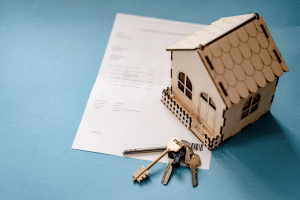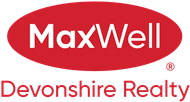Purchasing your first home can feel overwhelming, particularly when navigating the complexities of mortgages. To simplify this significant process, we’ve dissected it into essential terms and typical mortgage options, empowering you to make well-informed choices.
Need-to-Know Terminology
Mortgage: A mortgage is a loan used to buy a home. Most homebuyers cannot afford to pay the entire home’s purchase price up front, so instead they pay a down payment (the initial payment made on the house by the buyers) and take out a loan to pay for the rest. This loan is repaid with interest over an agreed upon number of years. There are different types of mortgages available depending on how the buyer wants to pay back the loan (we will dive more into that later).
Down Payment: A down payment is the initial money that you (the buyer) put into the purchase of the property. This is often between 5% and 20% of the home’s value. Specific mortgages have different requirements on the amount of the down payment. When applying for a mortgage, you will find options for terms, expiry dates, etc. These refer to the time frame in which you will be paying back the loan.
Term: The length of time during which you will be paying back your loan. Terms are most often five years, but they can vary in length from a few months to years.
Expiry Date: The expiry date is when the term of your mortgage expires, at which point you are required to renew your mortgage (if it is not yet paid it full), deciding the type, rate, and length for the next term of your payment.
Payments are made at routine intervals (weekly, bi-weekly, or monthly), depending on the specific mortgage. Each payment is comprised of two parts.
Principal Payment: The principal is the portion of your payment that is the initial money you Borrowed.
Interest Payment: The interest is additional payments that you, as the buyer, are making in addition to the actual money borrowed. This is the money you are paying the money lenders to borrow the money.
Types of Mortgages
There are many types of mortgages a buyer can look into, but to keep it simple we have included eight of the most common mortgages in Canada.
1. Fixed-Rate Mortgages: In a fixed-rate mortgage, the interest rate is agreed upon at the beginning of the mortgage loan. The amount of interest in each payment will not change from payment to payment, but fixed-rate mortgages tend to have higher interest rates than variable rate mortgages and restrict prepayments (if you choose to make prepayments, there will often be penalty fees).
2. Variable Rate Mortgages: Variable rate mortgages have no set interest rate, meaning that the interest on each payment can fluctuate. They are more unpredictable than a fixed-rate mortgage, but also tends to have lower interest rate.
3. Open Mortgages: Open mortgages are a great option if you want to have the option to make additional payments or pay off your mortgage quicker. They allow much more flexibility in payments and allow large lump-sum payments without penalizations, but are also known to have higher interest rates.
4. Closed Mortgages: Closed mortgages have lower interest rates than open mortgages but do not allow for prepayments without penalty fees and often put limitations on how much money can be put towards repaying the mortgage each year.
5. Portable Mortgages: Portable mortgages allow a mortgage to be transferred from one house to another. They can cause issues in certain cases, but can also be useful if you have good mortgage terms (eg. a lower interest rate) that you want to carry with you.
6. Assumable Mortgages: While a portable mortgage moves with the owner and switches houses, an assumable mortgage stays with the house but switches owners. It maintains the original agreement terms of the mortgage and transfers over to the new homeowner, who will pay the remaining mortgage payments according to the originally determined mortgage contract. Assumable mortgages are ideal if you are buying a home and interest rates have increased significantly since the home was initially bought. They are most commonly fixed-rate mortgages.
7. Convertible Mortgages: A convertible mortgage allows the homeowner to switch from an open to closed or closed to open mortgage during their mortgage term. They tend to have lower interest rates than an open mortgage and allow a bit more flexibility than closed mortgages because of this ability to switch payment terms.
8. Private Mortgages: Private mortgages are offered by individuals or specialized institutions and are generally used by those who cannot get approved by a bank or government-regulated lender. Because not as closely tied to the government, private mortgages require a bit more caution. They also tend to have higher interest rates and shorter loan terms.
Looking to buy or sell property in Sherwood Park, Strathcona County, and the surrounding areas? Connect with our team to make the process as simple and straightforward as possible!



